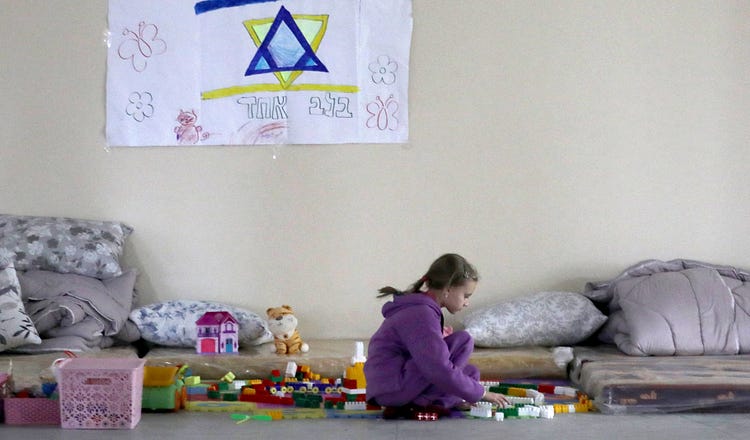Shabbat Among the Exiles

A Ukrainian Jewish refugee plays in Chisinau, Moldova, on March 13, 2022. (Gil Cohen-Magen/AFP via Getty Images)
Singing the liturgy with Jewish refugees in Moldova—'Our King, who redeems us from the hands of tyrants'—the words aren’t a memory, but a description.
58
After about the fifth day without showering, your skin starts to feel both too hot and too cold. A gray wool sweater only makes the problem worse. But a sweater it’ll have to be. Shabbat is coming to Kishinev, Moldova, and I don’t want the 70 or so Ukrainian refugees gathered at the Hotel Chisinau to be distracted by my wrinkled white shirt. For the fir…
Continue Reading The Free Press
To support our journalism, and unlock all of our investigative stories and provocative commentary about the world as it actually is, subscribe below.
$8.33/month
Billed as $100 yearly
$10/month
Billed as $10 monthly
Already have an account?
Sign In


